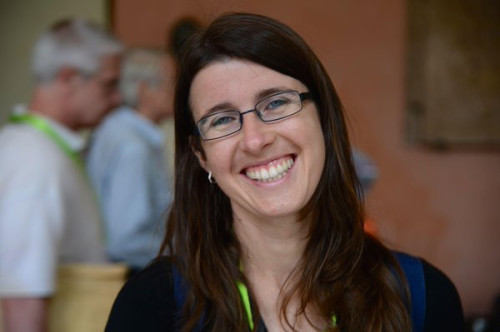Greener computing in ÔÇÿbig scienceÔÇÖ is possibleÔǪ if we change our data processing approach
Big science projects ÔÇô like those exploring the universe ÔÇô generate huge data volumes with a heavy carbon footprint. A ‗‗‗¢╬Ð╩ËãÁ team is testing AI to compress this data, cutting storage needs and reducing energy use and emissions.
‗‗‗¢╬Ð╩ËãÁ researchers have been testing AI-driven compression approaches, training models to recognise data files and design algorithms that remove or modify less important elements, therefore reducing the amount of data needed. An example could be a compressed MP3 file with inaudible components of audio removed, at no loss to the listener.
One tool, ÔÇÿBalerÔÇÖ, works with an autoencoder ÔÇô a type of neural network trained to decrease the number of dimensions of input data, making it smaller.
Caterina Doglioni, Professor of Particle Physics, explains: ÔÇ£There are multiple avenues to reduce the computing resources we use. One is reducing the amount of data to be stored through data compression.ÔÇØ
The team are also measuring the energy usage of Baler and other approaches, to identify optimisations that could foster more energetically sustainable, data-driven scientific practices.
Rosie Schiffmann, an undergraduate student in the research team, adds: ÔÇ£With Baler and data compression as an example, weÔÇÖre giving researchers a way to track their computational ÔÇÿmetabolismÔÇÖ and make it more efficient. Green computing isnÔÇÖt a futuristic vision; itÔÇÖs actionable today if we rethink how we store and process data.ÔÇØ
The work in this project received funding from the European UnionÔÇÖs Horizon 2020 research and innovation programme and European Research Council (ERC) under Grant Agreements n. and .

Meet the researcher
The project is led by Caterina Doglioni, Professor of Particle Physics, together with supervisors James Smith (Postdoctoral Research Associate) and Michael Sparks (Senior Research Software Engineer). Within the University of ‗‗‗¢╬Ð╩ËãÁ team are PhD student Pratik Jawahar, Jack Goodsall and Rosie Schiffmann from the Physics & Astronomy internship program, Bradley Booth from DeepMindÔÇÖs AI Fundamentals Summer Internship program, and Sakshi Kumar, a Google Summer of Code student, working with collaborators in the US, Sweden and Ukraine.
